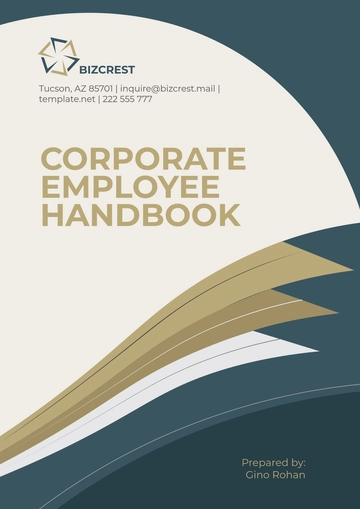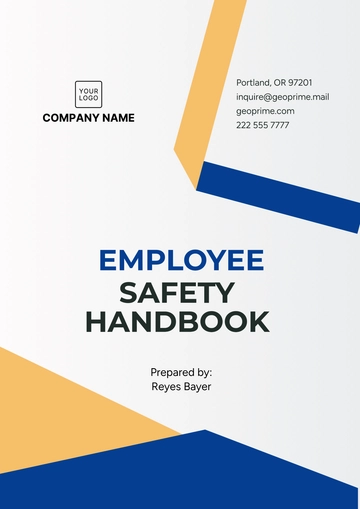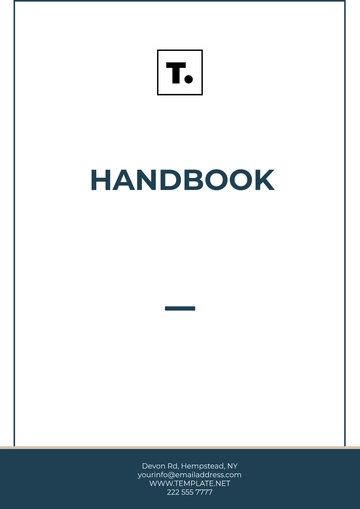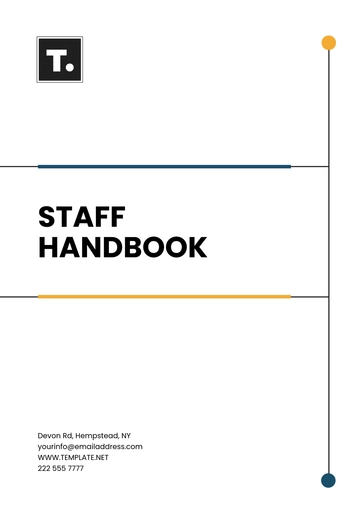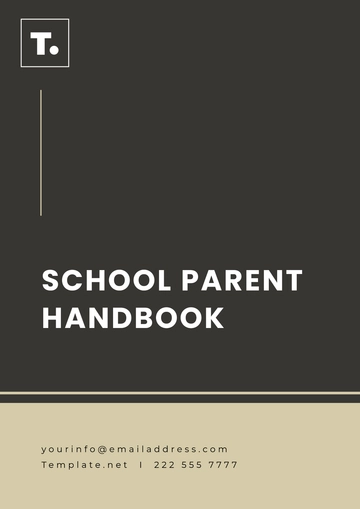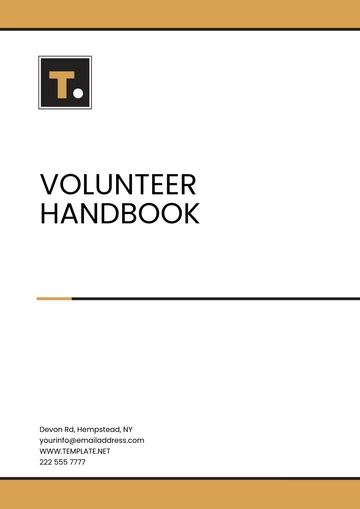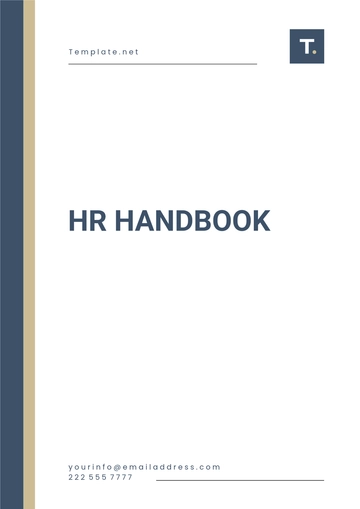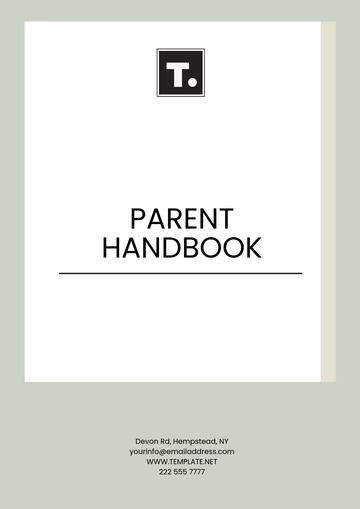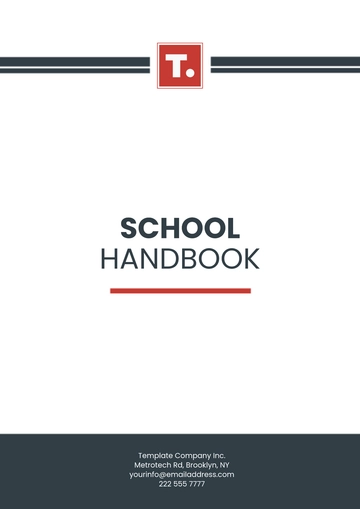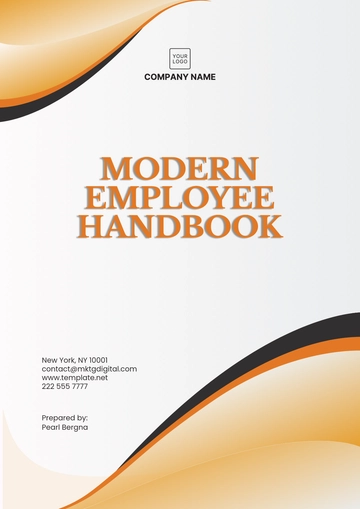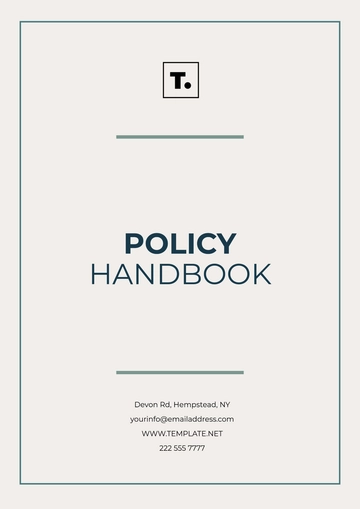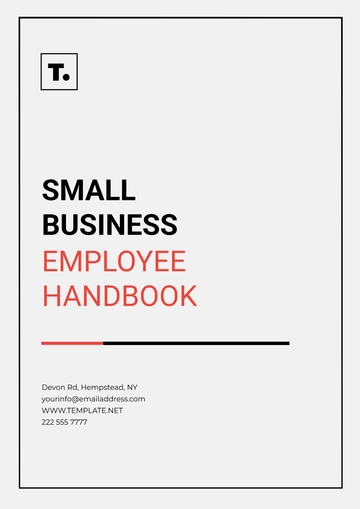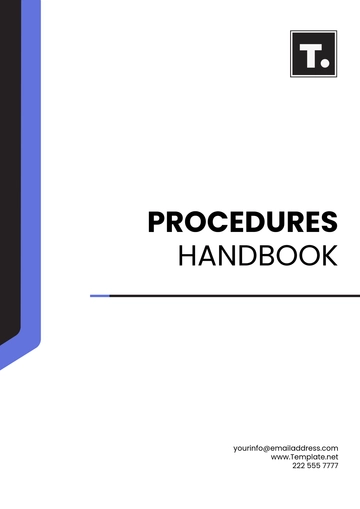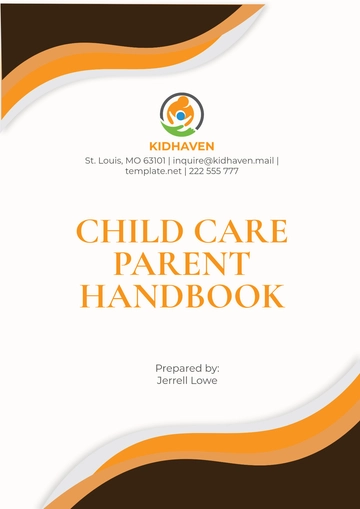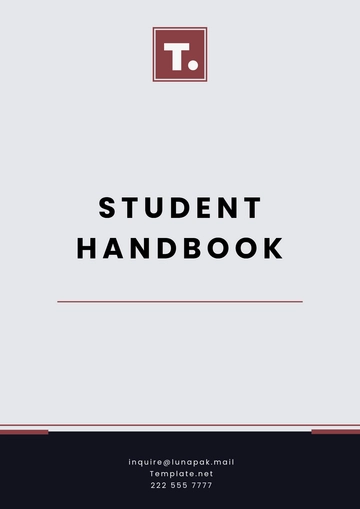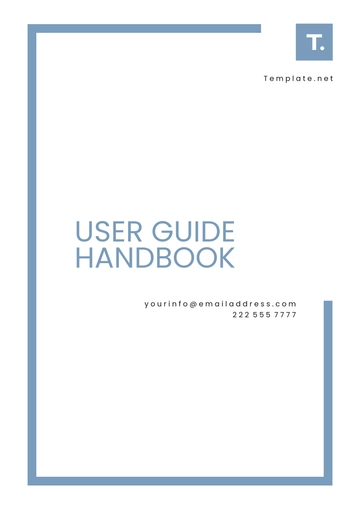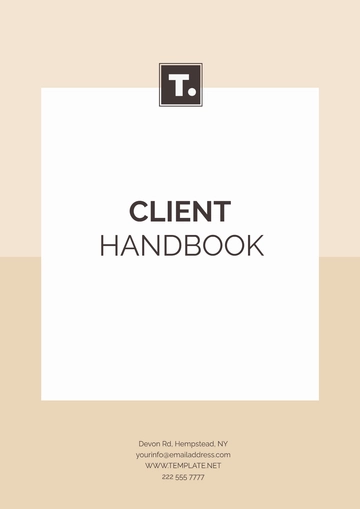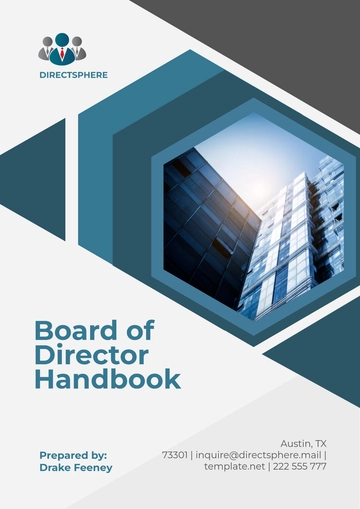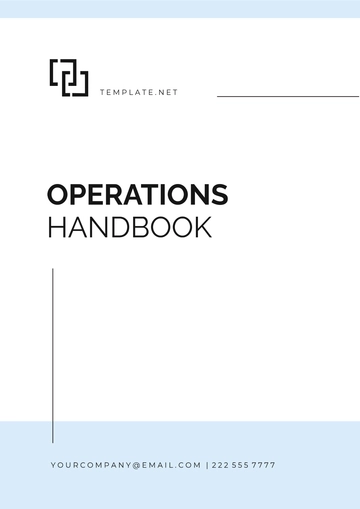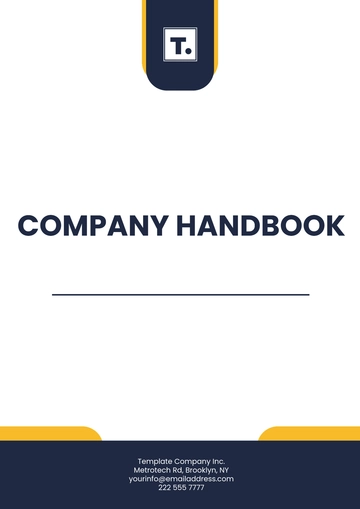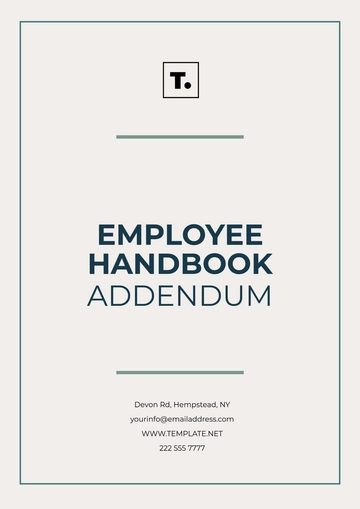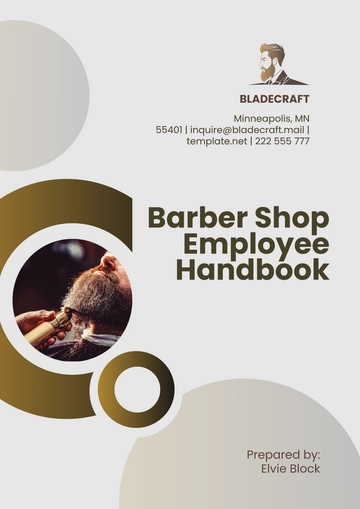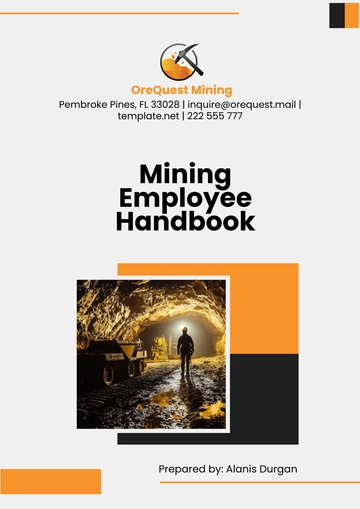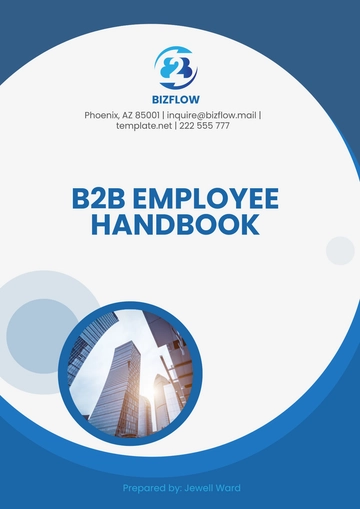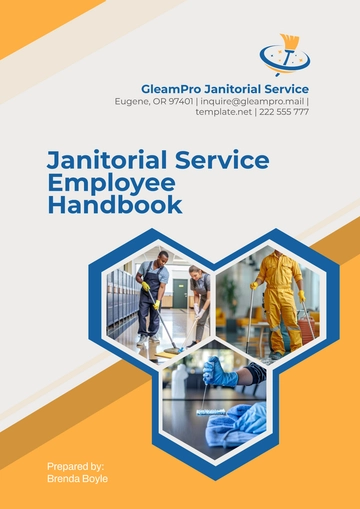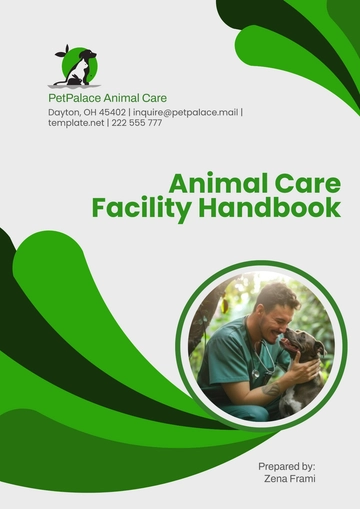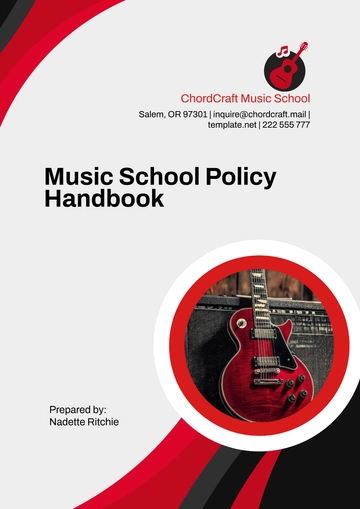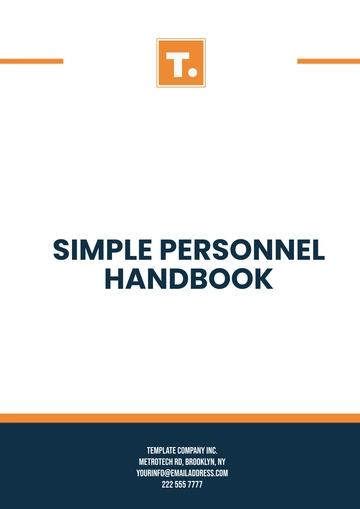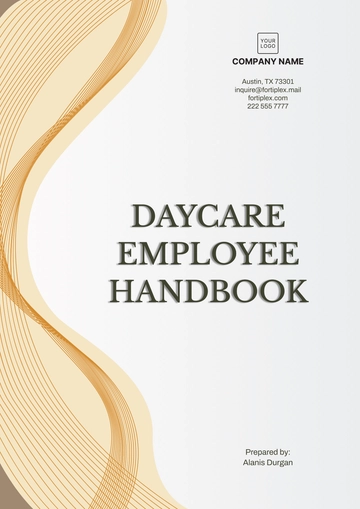Free Car Rental Company Handbook
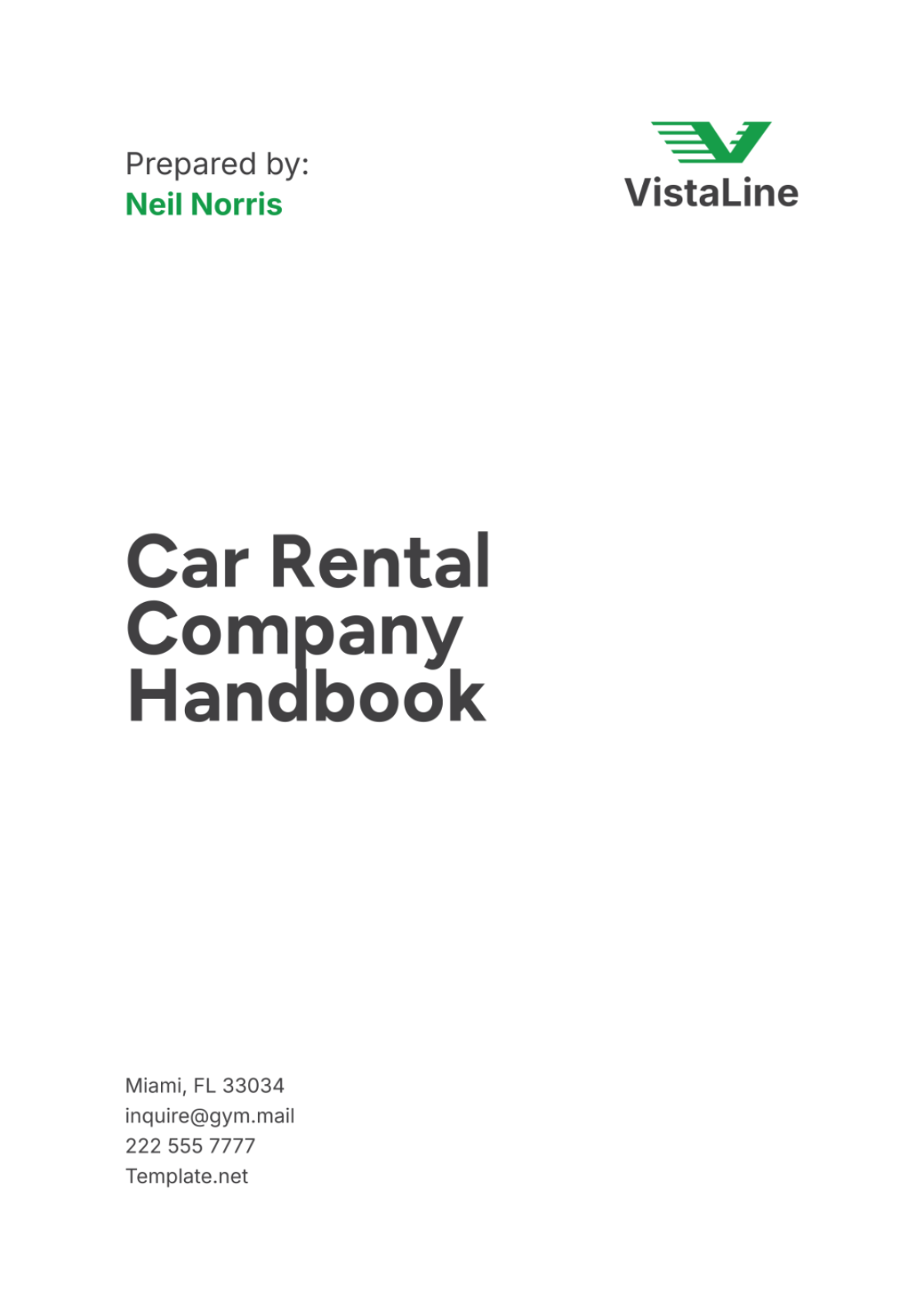
I. Introduction
Welcome to [Your Company Name]! This handbook is designed to provide you with essential information about our company and your role within it. Whether you are a new hire or a current employee, we hope this guide will serve as a valuable resource.
II. Company Policies
Our company policies are designed to promote a safe, productive, and respectful work environment. All employees are expected to adhere to these policies to ensure the smooth operation of our business.
Policy Category | Description |
|---|---|
Attendance and Punctuality | Employees are expected to be present and punctual for their scheduled shifts. Regular attendance is crucial for maintaining productivity and operational efficiency. Employees should notify their supervisor as soon as possible if they are unable to attend work or will be late. Unexcused absences or frequent tardiness may result in disciplinary action. |
Dress Code | Employees must adhere to the company's dress code policy, which is designed to ensure a professional appearance. The dress code may vary depending on the role and work environment, but generally includes guidelines for business casual attire. Specific dress code requirements will be outlined in the employee handbook. Personal grooming should also reflect a professional image. |
Code of Conduct | The code of conduct establishes expectations for professional behavior and ethical standards. Employees are expected to act with integrity, respect, and professionalism in all interactions. This includes maintaining a positive work environment, avoiding conflicts of interest, and adhering to company policies and procedures. Violations of the code of conduct may result in disciplinary action. |
Use of Company Property | Company property, including computers, vehicles, and office supplies, should be used for business purposes only. Employees are responsible for the proper care and maintenance of company property. Misuse or damage to company property may result in disciplinary action or financial liability. Employees must return all company property upon termination of employment. |
Leave Policies | Leave policies outline the types of leave available to employees and the procedures for requesting time off. Employees should follow the appropriate procedures for submitting leave requests, including providing sufficient notice and documentation where required. Approval of leave requests is subject to company policies and operational needs. |
Sick Leave | Employees are entitled to sick leave for personal illness or medical appointments. Sick leave should be requested as soon as possible, and employees may be required to provide a medical certificate for extended absences. Accrued sick leave may be used in accordance with company policy and local regulations. Unused sick leave may be carried over or forfeited based on company policy. |
Vacation Leave | Employees are entitled to vacation leave for rest and relaxation. Vacation leave accrual is based on tenure and employment status. Employees should request vacation leave in advance to allow for adequate planning and coverage. Unused vacation leave may be carried over or subject to a "use-it-or-lose-it" policy as defined by company policy. |
Parental Leave | Parental leave is available to employees for the birth or adoption of a child. The leave duration and pay entitlements are in accordance with local regulations and company policy. Employees should notify their supervisor and follow the company’s procedures for requesting parental leave. Documentation such as a birth certificate or adoption papers may be required. |
III. Employee Responsibilities
Employees play a crucial role in the success of our company. Below are the key responsibilities expected from each team member:
Responsibility | Description |
|---|---|
Adhere to All Company Policies and Procedures | Employees are required to follow all company policies and procedures as outlined in the employee handbook and other official documents. Compliance with these guidelines ensures operational consistency, legal compliance, and a positive work environment. Employees should familiarize themselves with all relevant policies and seek clarification from management if needed. |
Provide Excellent Customer Service at All Times | Delivering exceptional customer service is a fundamental responsibility. Employees must interact with customers professionally, courteously, and efficiently. This includes addressing customer inquiries, resolving issues promptly, and ensuring a positive overall experience. Excellent customer service enhances satisfaction, builds loyalty, and upholds the company’s reputation. |
Maintain the Cleanliness and Safety of Rental Vehicles | Employees are responsible for ensuring that rental vehicles are kept clean and in safe working condition. This includes performing routine checks, cleaning interiors and exteriors, and addressing any maintenance or safety concerns. Proper vehicle maintenance is crucial for customer satisfaction and safety, as well as for prolonging the lifespan of the company’s fleet. |
Report Any Issues or Incidents to Management Promptly | It is essential to report any issues or incidents, including accidents, damages, or safety concerns, to management immediately. Prompt reporting allows for timely resolution, proper documentation, and necessary follow-up actions. This responsibility helps in maintaining operational efficiency, ensuring safety, and addressing any potential problems effectively. |
IV. Customer Service Standards
Our goal is to ensure customer satisfaction through outstanding service. Employees should:
Customer Service Standard | Description |
|---|---|
Greet Customers Warmly and Professionally | Employees should greet each customer with a friendly, welcoming demeanor. A warm and professional greeting sets a positive tone for the interaction and makes customers feel valued. This includes using appropriate language, maintaining a positive attitude, and providing a genuine smile. |
Provide Accurate and Clear Information About Rental Options and Policies | Employees are responsible for delivering precise and understandable information regarding rental options, pricing, policies, and any other relevant details. Clear communication ensures that customers make informed decisions, reducing the likelihood of misunderstandings or dissatisfaction. All information should be up-to-date and compliant with company policies. |
Handle Customer Complaints Promptly and Respectfully | Address customer complaints swiftly and with respect. Employees should listen carefully to the customer's concerns, apologize if necessary, and offer solutions or escalate the issue to management if required. Prompt and respectful handling of complaints helps in resolving issues effectively and maintaining customer trust. |
Ensure the Rental Process is Efficient and Hassle-Free | Employees should strive to make the rental process as smooth and efficient as possible. This includes minimizing wait times, ensuring all paperwork is completed accurately, and addressing any potential obstacles proactively. An efficient rental process enhances the customer experience and contributes to overall satisfaction. |
V. Safety Protocols
Safety is a top priority in our operations. Employees must follow safety protocols to protect themselves, customers, and company property. Key protocols include:
Safety Protocol | Description |
|---|---|
Conduct Routine Inspections of Rental Vehicles | Employees must perform regular inspections of rental vehicles to ensure they are in good working condition. Routine checks include examining tires, brakes, lights, and fluid levels. Inspections help identify and address potential issues before vehicles are rented out, ensuring safety for both customers and employees. |
Ensure All Vehicles Meet Safety Standards Before Renting | It is essential to verify that all vehicles comply with safety standards and regulations before they are handed over to customers. This involves checking that vehicles have up-to-date safety certifications, are free from defects, and are equipped with necessary safety features. Ensuring compliance with safety standards helps prevent accidents and maintains customer trust. |
Report Any Safety Concerns Immediately | Employees must report any safety concerns, such as mechanical issues, defects, or hazards, to management without delay. Immediate reporting allows for prompt resolution of safety issues, reduces the risk of accidents, and ensures that vehicles are safe for use. All safety concerns should be documented and addressed according to company procedures. |
VI. Compliance Guidelines
Compliance with legal and regulatory standards is critical. Employees should be familiar with the following guidelines:
Compliance Guideline | Description |
|---|---|
Data Protection and Privacy Policies | Employees must adhere to data protection and privacy policies to safeguard customer information and sensitive company data. This includes ensuring that personal data is collected, stored, and processed in accordance with applicable data protection laws and regulations. Employees should be familiar with procedures for handling data breaches and maintaining confidentiality. |
Anti-discrimination and Equal Opportunity Policies | Employees are required to follow anti-discrimination and equal opportunity policies to ensure a fair and inclusive workplace. This involves treating all individuals with respect, avoiding discriminatory practices, and promoting equal opportunities in all employment-related decisions. Employees should report any instances of discrimination or harassment according to company procedures. |
State and Federal Transportation Regulations | Compliance with state and federal transportation regulations is essential for legal and operational purposes. Employees must understand and follow regulations related to vehicle safety, licensing, and operational standards. This includes ensuring that all vehicles and drivers meet regulatory requirements and adhering to rules governing transportation operations. |
VII. Operational Guidelines
To maintain consistency and quality, the following operational guidelines should be followed:
Operational Guideline | Description |
|---|---|
Vehicle Maintenance and Inspection Procedures | Employees must adhere to established procedures for vehicle maintenance and inspection to ensure fleet safety and reliability. This includes performing regular maintenance checks, conducting pre-rental and post-rental inspections, and addressing any issues promptly. Maintenance logs should be updated and retained as required. Proper maintenance and inspections help prevent breakdowns and enhance customer satisfaction. |
Rental Agreement Procedures | Proper procedures for rental agreements must be followed to ensure clarity and legality. This includes completing all required documentation, obtaining signatures from both parties, and clearly outlining terms and conditions such as rental duration, pricing, and mileage limits. Rental agreements must be reviewed to ensure accuracy and compliance with company policies and legal requirements. |
Record-Keeping and Documentation | Accurate record-keeping and documentation are essential for operational efficiency and legal compliance. Employees must maintain detailed records of vehicle rentals, maintenance activities, customer interactions, and financial transactions. Documentation should be organized, secure, and retained for the required duration to support audits and operational reviews. |
Inventory Management | Effective inventory management involves tracking and managing company assets, including vehicles and equipment. Employees should monitor inventory levels, conduct regular audits, and manage stock to prevent shortages or overstocking. Proper inventory management ensures that resources are available as needed and helps control costs. |
VIII. Onboarding Process
The onboarding process is designed to acclimate new employees to the company culture and operations effectively. Steps include:
Onboarding Step | Description |
|---|---|
Orientation Program | The orientation program introduces new employees to the company’s mission, vision, and values. It provides an overview of company operations, introduces key team members, and familiarizes employees with the workplace environment. Orientation aims to integrate new hires into the company culture and help them understand their role and responsibilities. The program typically includes presentations, facility tours, and Q&A sessions. |
Training on Company Policies and Procedures | New employees will receive comprehensive training on company policies and procedures to ensure they understand operational standards, compliance requirements, and best practices. This training covers areas such as safety protocols, customer service standards, and specific job functions. Providing this training helps employees perform their duties effectively and adhere to company guidelines from the outset. |
Assigned Mentor for the First Month | Each new employee will be paired with a mentor for the first month to provide guidance, support, and answers to any questions. The mentor helps the new hire navigate the company, understand their role, and integrate into the team. This support system facilitates a smoother transition and helps new employees acclimate more quickly and effectively. |
Feedback and Evaluation | Regular feedback and evaluation sessions will be conducted to assess the new employee’s progress and address any issues or concerns. This includes formal evaluations at the end of the onboarding period, as well as ongoing feedback from the mentor and supervisor. These sessions provide an opportunity to discuss performance, set development goals, and ensure that the employee is on track to meet expectations. |
If you have any questions or need further assistance, please contact [Your Company Name] at [Your Company Email] or [Your Company Number]. Visit our website at [Your Company Website] for more information.
- 100% Customizable, free editor
- Access 1 Million+ Templates, photo’s & graphics
- Download or share as a template
- Click and replace photos, graphics, text, backgrounds
- Resize, crop, AI write & more
- Access advanced editor
Elevate your car rental business operations with the Car Rental Company Handbook Template from Template.net. This fully customizable and editable template covers all essential guidelines, policies, and procedures to ensure seamless management. Simplify your documentation process; the template is editable in our AI Editor Tool, making it easy to adapt to your specific needs. Empower your team with this comprehensive tool today.
